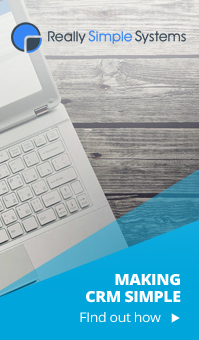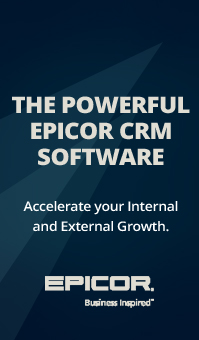
Social CRM
Social media—blogs, social networks, etc.—offer a wealth of
consumer data that businesses can leverage for client retention. More than 50%
of Australians aged 18-55+ use social networks tools (an average of 2.7 tools
eg Twitter, Facebook, LinkedIn) which means that there is a wealth of customer
information on social networks/conversation platforms that businesses cannot
afford to ignore. It also means that businesses will benefit by reaching out to
existing and potential customers through these social platforms.
What is Social CRM?
Word-of-mouth is a powerful way for a company to grow as:
- Personal recommendations carry great weight and,
- Its ‘free’ compared to other techniques to promote a
business
In the past word-of-mouth was hard to monitor and use. With the advent of Social Media like Facebook and twitter comment, criticism and control of what is happening to your brand and reputation happens outside your company – much more readily than in the past.
You have two choices – to ignore the activity or to participate and contribute to it.
Traditional CRM systems are built around structured end-to-end processes, and often about how a business portrays itself to the outside world. But Social CRM is about how a company responds actions by its customers and by how customers interact amongst themselves.
Social CRM systems have emerged as a way for businesses to consolidate customer-related processes across functional areas—as a traditional CRM platform would—but with the addition of social media management and monitoring.
Within the Social CRM market, there are many types of solutions, each having their own flavour, and each meeting different business needs.
What types of social CRM are there?
There are two basic Social CRM models:
- CRM vendors are offering social media management capabilities in the form of add-on modules that integrate with their existing CRM suites. Modules can range from simple (just Twitter/Facebook integration) to community collaboration functions.
- Social CRM vendors whose platforms focus almost exclusively
social networks. These Social CRM products were developed with community
engagement and online communication in mind. They are less process-centric than
the traditional CRM platforms.
What is a social CRM system?
A Social CRM system should include a range of facilities such as:
- Brand Tracking: to monitor and track conversation regarding
your brand or business.
- The ability to contribute to social media platforms—like
Twitter and Facebook.
- Community Support: to allow your customer and prospective
customers to participate in online communities and forums. This will allow
customer to customer word-of-mouth to take place online.
- Analytics: to help you listen and understand how people
interact with your brand and website.
What are benefits of Social CRM?
The benefits of Social CRM will likely fall into some hard, measurable benefits where the return is clear and others where there are longer term opportunities.
The measurable benefits can include:
- Improve Marketing ROI through better targeting for campaign
- Identify new business opportunities and improve
cross/up-sell
- Increase customer loyalty by improving customer
conversations and customer interaction efficiency
- Decrease customer service costs through self-help
communities and forums
- Rapid response to negative information about your business
The opportunities can include:
- Reduce cost-of-sales by building community and word-of-mouth
around the brand and product
- Improve innovation by asking your customers to contribute to
improvements
- Identifying new ways to improve your products and customer
services
- Identify who is providing you the best word-of-mouth return
and actively engage with them
What are the negatives of social CRM?
Managing activity on social networks like Twitter, Facebook, and LinkedIn is not simple, and the influx of social media data can sometimes make already complex tasks seem more complicated and difficult to manage.
Marketing teams are already busy planning and developing sophisticated campaigns and delivering them through traditional outlets. Social networks present a tough medium to master. Likewise, sales and support departments are grappling with the new lead management and customer service processes required to manage the rush of social media data. Previously, traditional customer relationship management (CRM) systems were the perfect solution for streamlining customer and lead information, and automating sales and marketing customer connections.
But the upsurge in social media usage means sales, marketing, and customer service teams need modern CRM systems that help them mine social media data and manage new forms of campaigning.
Summary
Social CRM is an emerging and exciting area in the management of customers.
Our summary of recommendations would depend upon where you are today and what the size of your business is.
If you do not have a CRM system then it’s likely that the focus for you will be to implement a system, but to include Social CRM as a ’future requirement’.
If you do have a CRM system in place, then review the add-on modules for Social CRM that your solution has in place.
If you already have CRM installed and you are a large company then it’s likely that you need to consider your strategy and review Social CRM platforms and traditional CRM Add-on modules.
Date posted: 2014-12-15 | posted by: miked
Tweet



